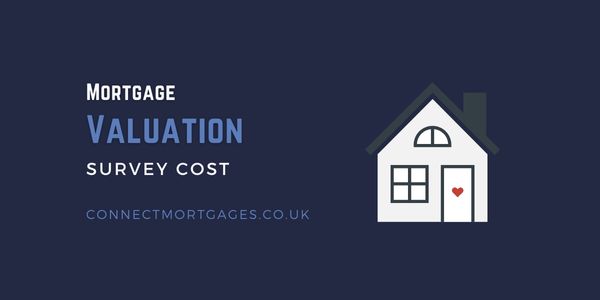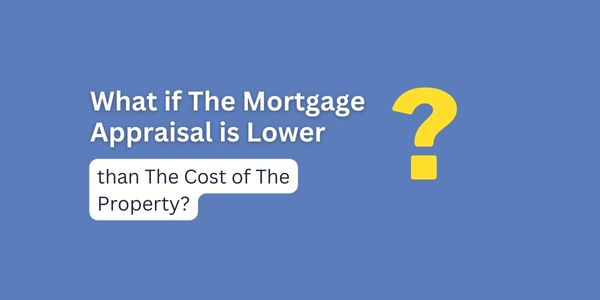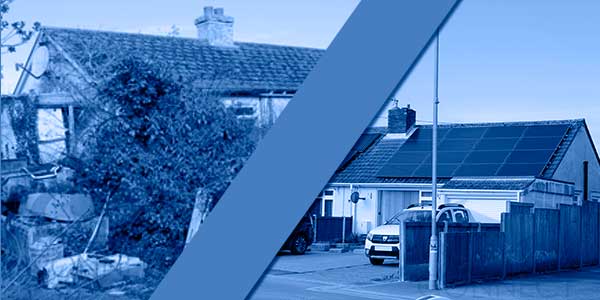When applying for a new mortgage or remortgage, your mortgage lender will require a mortgage valuation. You might have loads of questions, such as;
- What exactly is that?
- Who is responsible for this?
- And how long does the process take?
Furthermore, are there any potential issues along the way? With these questions in mind, let’s dive deep into understanding this crucial part of the home loan application valuation guide.
What is a Mortgage Valuation?
To determine whether the purchase price reflects the property’s market value, your lender will conduct a mortgage valuation (a valuation survey). Another reason for this is to help lenders assess the loan-to-value ratio (LTV). This ratio shows how much of the property value you intend to borrow. The LTV can influence the mortgage rates and deals available to you. Generally, a lower LTV means more options. Lenders may also request another valuation when you decide to remortgage.
It is important to understand the difference between mortgage valuations and other services. For example, estate agents conduct house price valuations to determine the listing price of your home. Alternatively, house surveys assess the condition of a property before purchase.
Mortgage valuations are primarily for the lender’s benefit, not yours. The lender will select a valuer they trust, and you are unlikely to see the report. You may need to pay for this service unless the lender offers free valuations.
Mortgage Valuation Survey Cost

The cost of a mortgage valuation survey often depends on property size. However, some lenders offer fixed-fee services. It may seem appealing to choose deals that include free valuations. Yet, this should not influence your decision. Lower interest rate deals might appear costlier upfront. However, they often provide greater long-term savings than free valuations.
For tailored mortgage advice, consult an independent broker. They can help you find the most suitable option for your needs.
What Elements Does a Mortgage Valuation Surveyor Assess When Conducting an Inspection?
The mortgage valuation process depends on the type of appraisal the lender requests. Traditionally, surveyors would visit the property in person to inspect and prepare their reports. However, modern technology and recent regulations now allow valuations to be completed remotely. Some surveys are conducted through drive-by inspections, where the property is assessed from its exterior.
The lender decides which type of survey is required based on specific factors. For example, a physical inspection may be necessary if the property is built with an uncommon material like concrete or is located in an area with limited online data. This decision is entirely at the lender’s discretion, and applicants cannot influence the choice of survey method.
What if The Mortgage Appraisal is Lower than The Cost of The Property?

In some cases, your dream property may be valued lower than expected. This is known as a ‘down valuation’. It can affect the loan amount you qualify for or the interest rate offered. As a result, mortgage lenders may reduce the amount they are willing to lend. They may also restrict access to their most competitive rates.
One option to address this issue is to discuss the price with the seller. Working towards a mutually acceptable price could help resolve the valuation difference. It may also improve your chances of securing better mortgage terms.
What Happens After Mortgage Valuations Have Been Carried Out?
Once the surveyor completes their mortgage appraisal, they will give your lender an opinion on the property’s market value. Consistency between this valuation and the remortgage amount or sale price is crucial for securing mortgage approval.
While the mortgage valuation is an important stage, it does not guarantee loan approval. Additional conditions may still need to be satisfied. Issues such as structural defects or differences between the offer price and the appraised value could delay the process.
Key Considerations
Avoid relying solely on a mortgage valuation when buying a property. It is vital to account for other aspects. A mortgage valuation is a brief property inspection, sometimes based on online data rather than a physical visit. It primarily serves the lender’s interest in assessing loan security.
Arranging a property survey for yourself is highly recommended. This report will provide detailed insights into the property’s condition and highlight any costly repairs that may be necessary.
Mortgage lenders have varying criteria. Some properties may fail to meet their requirements for mortgage security. For example, homes built with non-standard materials, such as prefabricated concrete or timber, might not be accepted. A professional valuation report can help determine whether a property’s construction complies with lending criteria.
Buildings insurance is essential for securing a mortgage. Ensure you have adequate coverage before exchanging contracts or completing a remortgage. Buildings insurance protects against costs related to repairs or rebuilding. Fortunately, you can select a policy that meets your specific needs.
Thank you for reading our “Mortgage Valuation | All You Need To Know Revelation ” publication. ” Stay “Connect“-ed for more updates soon!







